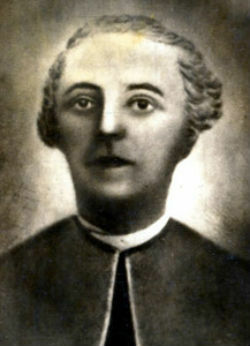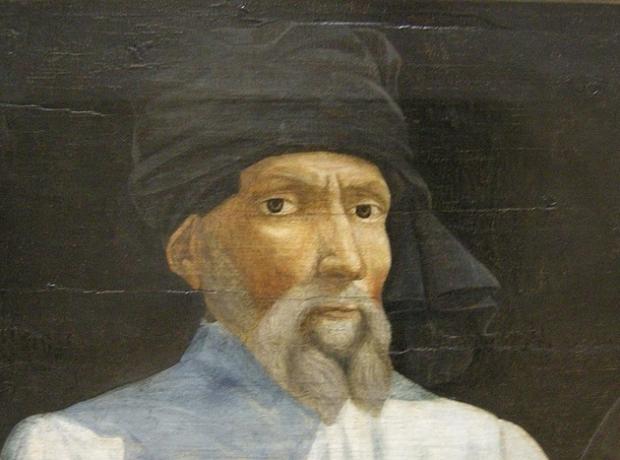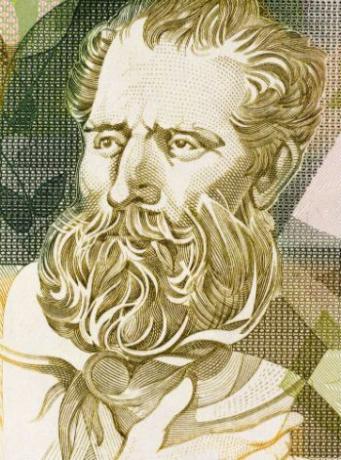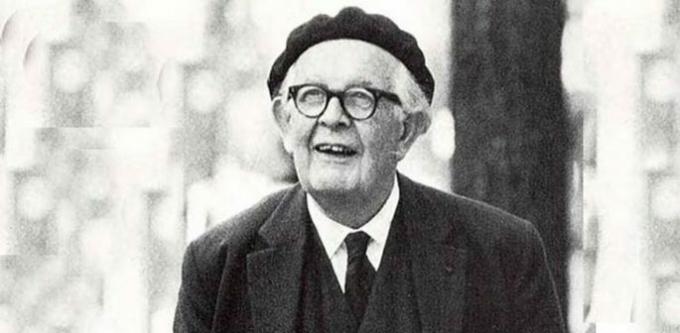Cláudio Manuel da Costa was one of the most important Arcadian poets in Brazil. The publication of “Poetic Works” (1768) represents the beginning of the movement in the country.
In addition to being a writer, he was a lawyer, a Brazilian jurist and participated in the movement of the Inconfidência Mineira.
Cláudio Manuel da Costa is the patron of Chair No. 8 at the Brazilian Academy of Letters (ABL).

Cláudio Manuel da Costa was born on June 5, 1729 in Vila do Ribeirão do Carmo (now Mariana), Minas Gerais. He was the son of João Gonçalves da Costa and Teresa Ribeiro de Alvarenga.
He began his studies in Vila Rica (now Ouro Preto), and later moved to Rio de Janeiro, where he studied philosophy at Colégio dos Jesuitas.
At the age of 20, he travels to Portugal with the intention of studying at the University of Coimbra. In 1753, he graduated in Canons from that University.
Ali wrote three of his works: Muscle Metric (1751), labyrinth of love (1753) and epicedium (1753). In these poems, traces of the Baroque, such as the styles of the cultism and conceptism.
He returns to Brazil and goes to live in Vila Rica. There he worked as a lawyer, secretary of the Provincial Government and was a land measuring judge at the Vila Rica Chamber.
In 1768, he founded an Arcadia called “Colônia Ultramarina”, in the city of Vila Rica. From that point on, and from the publication of Obras Poéticas, Cláudio Manuel da Costa is considered the introducer of the Arcadian movement in Brazil.
In addition to him, the Arcadian poets deserve mention: José de Santa Rita Durão (1722-1784), José Basílio da Gama (1741-1795) and Tomás Antônio Gonzaga (1744-1810).
It is noteworthy that Cláudio Manuel da Costa was a friend of the painter cripple it's from Tiradentes, the leader of the Inconfidência Mineira.
He was a great friend of the arcadian writer Tomás Antônio Gonzaga and, like him, he was involved in the Inconfidência Mineira movement. As a result, he was interrogated and arrested in 1789.
He even denounced his friends, committing suicide on July 4, 1789 in the prison in Ouro Preto, Minas Gerais. He died at age 60.
Learn more about the historical context of Mining Inconfidence.
Works by Cláudio Manuel da Costa
Cláudio Manuel da Costa's main works are:
- Metric Worship (1749)
- Muscle Metric (1751)
- Labyrinth of Love (1753)
- Epicedium (1753)
- Poetic Works (1768)
- Vila Rica (1773)
- Handwritten Poetry (1779)
Characteristics of Cláudio Manuel da Costa's Works
- simple language
- Lyricism
- bucolicism
- pastoralism
- cult of nature
Pseudonym of Cláudio Manuel da Costa
Arcadian writers adopted pseudonyms, and Claudio Manuel da Costa's was Glauceste Satúrnio, a pastor who loved his muse, Nise.
Main Poems
To better understand the writer's language, check out two sonnets by Cláudio Manuel da Costa below.
Sonnet 1
“I am a Pastor; I don't deny you; mine mounted
These are the ones you see there; I live happy
When bringing among the flowering grass
The sweet company of my cattle;
There, the lovers' trunks can hear me,
What the old people became;
Any of them your damage feels;
How I also feel my care.
Ye trunks (I tell them) that someday
steadfast you behold yourselves, and sure
In the arms of beautiful company;
Comfort yourselves with me, you hard trunks;
May I gladly see myself for some time;
And today Amor cry perjures deals.”
Sonnet 2
“This is the river, the mountain is this,
These are the trunks, these are the rocks;
These are still the same groves;
This is the same rustic forest.
Everything full of horror manifests itself,
River, mountain, logs, and boulders;
That of love in the softest plots
It was a happy scene, and urn is already dismal.
Oh how I remember having gone up
That pile, and sometimes, that downloading
I left the wet valley in tears!
Everything is my memory portraying;
That the infamous noise of the same nostalgia
Come the dead species awakening.”
See too:
- Arcadianism in Brazil
- Arcadianism in Portugal
- Arcadian Features
- The Language of Arcadianism



